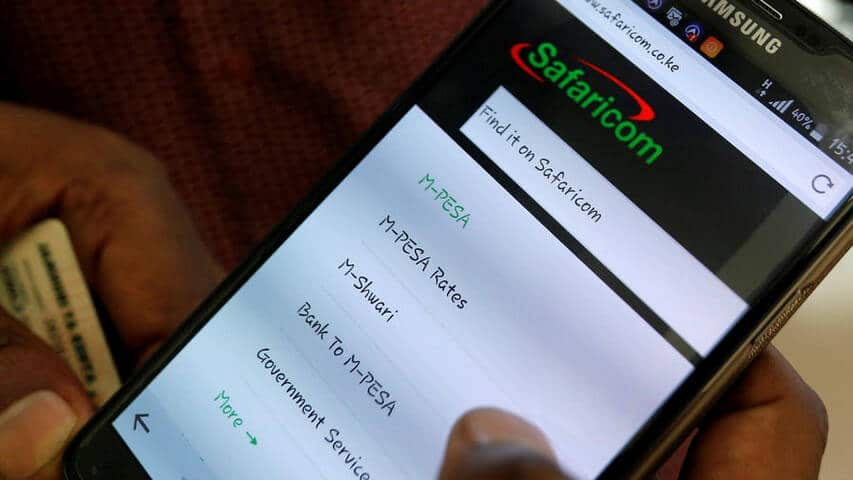
In a context where only 28% of the African population has a bank account and where 90% of workers are active in the informal economy, Fintechs play a crucial role. One of them, in particular, stands out for its ability to revolutionize money transfers, thus facilitating access to financial services for millions of workers.

Fintech in Africa, driven by the rise of mobile technology, is radically transforming the landscape of financial services. This revolution is led by innovative companies that tackle the challenges of financial inclusion. In this context, one Fintech stands out by facilitating money transfers, offering viable alternatives to African workers who are often excluded from traditional banking systems.
Table of Contents
ToggleThe Rise of Fintech in Africa
In Africa, only 28% of the population has a bank account. This reality pushes Fintechs to develop tailored solutions, mainly based on the massive use of mobile phones. Today, the continent has become a true laboratory of financial innovations. The solutions offered by these companies enable access to populations that were previously excluded from traditional banking services.
The Key Role of Mobile Money Transfers
With the increasing penetration of mobile phones, mobile money transfer has become a popular solution. In 2024, Africa continues to show impressive growth in this area. Mobile payment systems like M-Pesa in Kenya have become models of success, showing the way forward for other players in Fintech on the continent.
Examples of Success
Several African Fintechs have managed to stand out. For example, Chipper Cash has revolutionized cross-border money transfer. With a valuation of $2.2 billion in 2021, this startup has met an urgent need for expatriate African workers wanting to send money back to their families. Similarly, companies like Paystack and Flutterwave have raised millions of euros to develop robust and secure payment infrastructures.
Growing Funding
Investors are not mistaken. Many African Fintechs are raising significant funds. For example, the Fintech YMO recently raised €3 million, thanks to the confidence shown by venture capital funds like Breega and INCO Ventures. This funding allows these companies to expand their services, improve their technology, and enhance their social impact.
Significant Impact on Workers
The solutions provided by these Fintechs allow African workers, especially those in the informal economy (which represents 90% of the active population in Africa), to manage their money more effectively. Mobile money transfers offer a safe and quick alternative for sending and receiving funds, reducing costs, and eliminating traditional barriers associated with international money transfers.
Increased Financial Inclusion
Fintech plays a crucial role in the financial inclusion of marginalized populations. By offering accessible financial services to all, these companies contribute to reducing inequalities and promoting economic development. They open up new opportunities for local entrepreneurs and improve the well-being of workers and their families.
- Improved Accessibility: Enables unbanked workers to send and receive money easily.
- Reduced Fees: Lower transaction costs compared to traditional services.
- Enhanced Security: Use of advanced technologies to protect transactions.
- Speed of Transfer: Nearly instant transactions, even between different countries.
- Ease of Use: User-friendly interfaces tailored to the technological level of users.
- Financial Inclusion: Contributes to the integration of informal workers into the formal economy.
- Support for Entrepreneurship: Facilitates payments and fundraising for small businesses.
- Portability: Accessible via basic mobile phones, eliminating the need for expensive smartphones.
- Increased Trust: Reduces the use of informal and unsecured systems.
- Multilingual Support: Interface available in several local languages.
- Collaboration with Banks: Partnerships with financial institutions to expand service reach.
- Financial Education: Initiatives to train users in more effective financial management.
- Economic Stability: Contributes to a more stable economy by facilitating cash flow.
- Social Impact: Improves living conditions for workers and their families.
- Scalability: Ability to evolve to include new services and features.
- Growing Adoption: Increasing numbers of workers and businesses adopting these services.
Le transfert d'argent à portée de main 24h/24h 🥳
— NITA Transfert d'Argent (@nitatransfert1) July 15, 2024
Avec l'application mobile MyNITA gardez votre argent en toute sécurité partout au Niger et en Afrique de l'Ouest.
Téléchargez gratuitement l'application MyNITA sur PlayStore et AppStore.
Contactez notre service clients au 401. pic.twitter.com/HKSvt4dgH9





